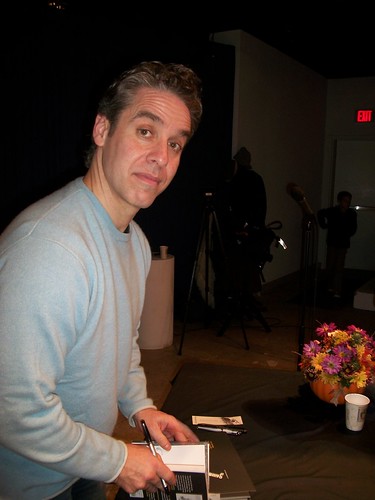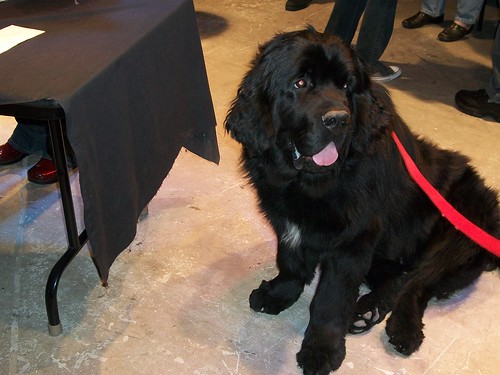
Brad Meltzer, a former local comics writer, answered some of my questions on his new tv show Decoded. First, here's some information about him from the press release for the show.
Brad Meltzer is the #1 New York Times bestselling author of The Book of Fate and six other novels. His first non-fiction work Heroes For My Son, a collection of historical heroes, recently hit the New York Times bestseller list. Meltzer is also author of the critically acclaimed comic books Identity Crisis and Justice League of America and is the first author to ever reach the #1 spot on both the New York Times and the Diamond comic book bestseller lists simultaneously. Meltzer's books have spent over eleven months on bestseller lists, and have been translated into over 25 languages.
Best-selling author Brad Meltzer loves a good mystery. A history enthusiast known for his immaculate research, he has studied and written about some of America's most revered institutions and documents. But sometimes he uncovers unverifiable stories that keep him awake at night. Is there another hidden message buried in the Statue of Liberty? What happened to the White House cornerstone that's been missing for two centuries? Could it be true that John Wilkes Booth lived for 40 years after his presumed death under an assumed identity?
In the new 10-part series BRAD MELTZER'S DECODED, premiering on Thursday, December 2 at 10 p.m. on HISTORY®, Meltzer scours secret clues, symbols and conspiracy theories to unravel some of society's most provocative enigmas. And the deeper he digs into the past, the more we learn about our future.
Together with a team of experts – Buddy Levy, a professor and journalist who assumes there is always more than meets the eye; Christine McKinley, a mechanical engineer who believes only what she can prove; and Scott Rolle, a trial lawyer who is skeptical by nature – Meltzer hunts for answers to questions that have perplexed us for centuries yet have never been fully investigated.
The premiere episode rolls out with "The White House" as the team gets to the bottom – literally – of a mystery concerning the cornerstones of our democracy. Laid by the ultra secretive Freemasons, this landmark piece of stone vanished. The search for the cornerstone has been on for over 200 years, everyone from Harry Truman to Barbara Bush have looked for it. Is it a coincidence…or is there a secret conspiracy tied to these stones and the buildings they were meant to support?
ComicsDC: Brad, to provide a figleaf of cover for this appearing on ComicsDC - you used to live in suburban Maryland, and you still write comics, correct?
Brad Meltzer: Of course.
ComicsDC: How did the idea for the tv show come about?
Brad Meltzer: One of the heads of HISTORY read my novel The Book of Fate, which dealt with Freemasons and the secret codes that Thomas Jefferson used when he was President -- and then said, "We should do a show like this." And y'know what that is? That's dumb luck by me.
ComicsDC: How did the topics get picked?
Brad Meltzer: I keep a book (now books) of every idea I've had over the years -- some stupid and dumb and not fleshed out -- and some that'll feed characters and comic books and anything else. And there were just tons of historical details that I'd love to know the answers to, but just couldn't use in the books. So really, I'm stealing from my future novels.
ComicsDC: How much research do you personally do or supervise?
Brad Meltzer: For the novels, I do all the research myself. But for the show, HISTORY said, you give us the mysteries and we'll give you the research team to solve it. The problem is, I still couldn't help myself and sometimes found myself digging as well.
ComicsDC: Which is your favorite show?
Brad Meltzer: Of Decoded? I love this first one airing tonight -- about the first piece of the White House. That was the very first idea I suggested, and it really set up a good model for the show. Sure, we're not digging it up from below the White House -- but we do answer questions like, is it hollow? And what's inside? As for surprises, the John Wilkes Booth one is the one that kept me awake.
ComicsDC: Navy medical historian Jan Herman is a friend of mine - I've known him for 20 years - and he hasn't convinced me yet that Lincoln's murderer John Wilkes Booth may have escaped, as one of your shows examines. Did any of the shows change your mind about an historical 'truth'?
Brad Meltzer: I hear you. And I started the Booth show thinking the exact same thing. But wait till you see Booth's family telling their side of the story. It's like "Who is Donna Troy?" Will mess you up good.
ComicsDC: Is the show going to continue? If so, do you know what other topics you'd like to look into?
Brad Meltzer: It depends if we get more viewers than my last try at television -- Jack & Bobby. There, our ratings were 14. Not a 14 share. Fourteen people. Total.
ComicsDC: Is it really possible to solve a mystery for a tv show?
Brad Meltzer: Especially with historical shows, the biggest barrier is simply that so much of the physical evidence is gone or unavailable. When Lee Harvey Oswald was dead, theories started that it wasn't him in the grave. So they dug him up and proved it was. If you want to solve the Booth mystery, dig up the grave. For now, the government still won't allow it. But when you watch our Lewis episode, the ballistic evidence and the other details we find definitely add a huge piece to the puzzle.
ComicsDC: Your next book is about secrets in a museum or archives - can you tell us anything about that?
Brad Meltzer: The Inner Circle comes out 1/11/11 and for that one, I got help with the research from a former President of the United States. So I'm now gearing up that release.
ComicsDC: What is your favorite museum or archives?
Brad Meltzer: The National Archives. No question. It's the attic of the US Government. Library of Congress is a close second.
ComicsDC: And bringing it all back home, do you have any plans to write another comic book? How about adapting your existing works to graphic novels?
Brad Meltzer: Love to write more comics. Without question, comics still have had the biggest influence on my writing. More than film. More than novels. More than anything. They're still the best.











